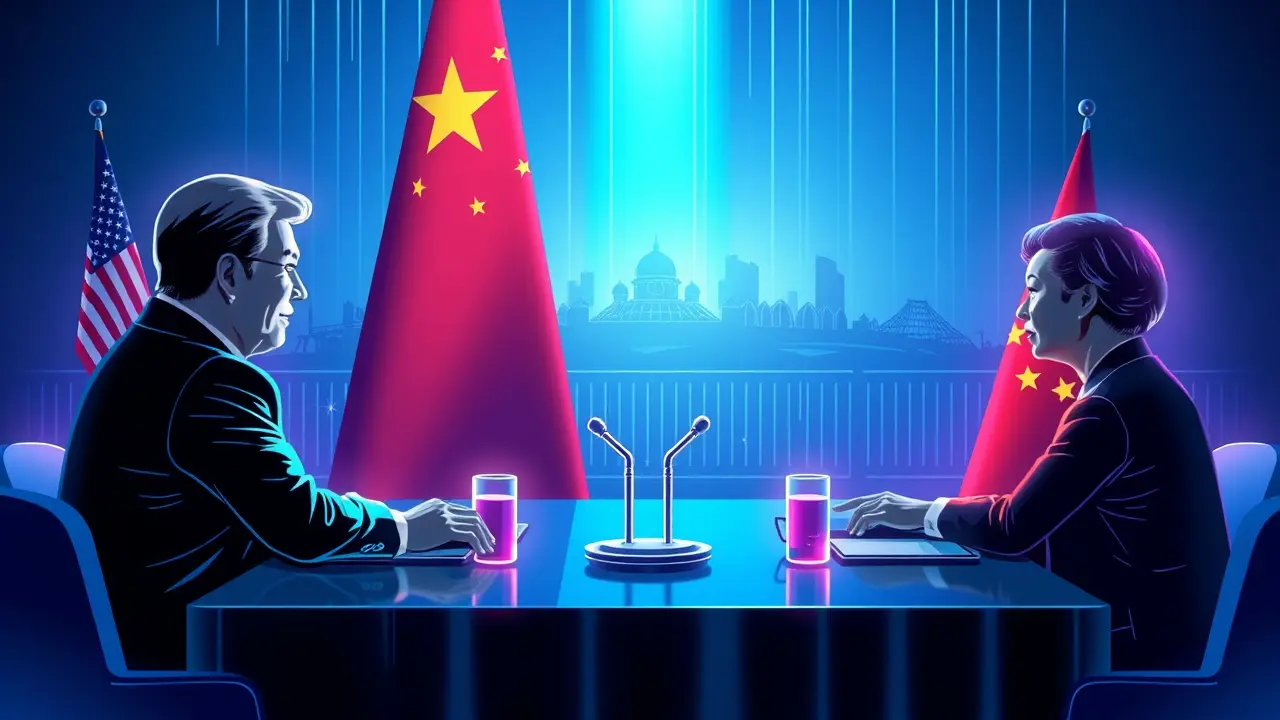
Politicssanctions & tradeTrade Deals
China charts independent modernization path amid US tensions.
RO
Robert Hayes
1 day ago7 min read
The carefully choreographed meeting between US President Donald Trump and Chinese President Xi Jinping on the sidelines of the Asia-Pacific Economic Cooperation summit in South Korea provided a momentary salve to jittery global markets, yet beneath the diplomatic pleasantries lies a relationship hardening into a new era of strategic competition. This encounter, while projecting an image of 'controlled' confrontation, cannot obscure the fundamental recalibration underway, a process reminiscent of the great power shifts that have historically reordered the international system.The temporary de-escalation on trade, a predictable oscillation in a complex economic interdependence, does little to mask Washington's underlying and bipartisan consensus viewing Beijing not merely as a rival but as a pacing threat to American primacy. From this vantage point, China's assertion of an independent modernization path is a geopolitical inevitability, a deliberate decoupling from a US-led order it perceives as inherently constraining.One can draw a parallel to Churchill's observations in the aftermath of World War II, where he spoke of an 'iron curtain' descending across Europe; today, a digital and technological curtain is being drawn, not by one power alone, but through the mutual suspicion and strategic hedging of both Washington and Beijing. The Trump administration's pride in its transactional approach, its weaponization of trade and technology, has only accelerated a process long foreseen by sober analysts: the end of the post-Cold War unipolar moment and the painful, protracted birth of a bipolar or multipolar world.For China, this means doubling down on technological self-sufficiency, fostering its own supply chains through initiatives like the Belt and Road, and insulating its financial systems from Western pressure—a modern-day version of a fortress mentality, albeit one built on semiconductors and digital yuan rather than stone walls. The consequences are profound, extending beyond tariffs to a Balkanization of the internet, competing standards for everything from 5G to artificial intelligence, and an arms race in quantum computing.This is not a cold war in the 20th-century sense, but a comprehensive contest for influence, governance models, and the very rules that will define the 21st century. The 'controlled' confrontation is therefore a misnomer; it is a managed transition into a new and more volatile chapter of great power relations, where the risk of miscalculation remains high and the tools of conflict are as likely to be cyberattacks and financial sanctions as they are traditional military posturing.
#editorial picks news
#US-China relations
#trade tensions
#diplomacy
#Xi Jinping
#Donald Trump
#APEC summit
#controlled confrontation
Stay Informed. Act Smarter.
Get weekly highlights, major headlines, and expert insights — then put your knowledge to work in our live prediction markets.
© 2025 Outpoll Service LTD. All rights reserved.